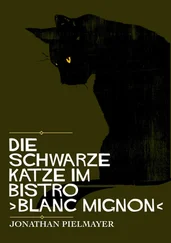When they were dropped off at the next address, over toward Alphabet City, they found no one at home: at least no one answered the intercom. Osbourne looked at his watch and pressed the button again. Several business cards had been stuck in the door, presumably by other would-be visitors with similar appointments. The name above the intercom, printed and stuck there with one of those old blue label-tape guns familiar from John’s own childhood, was Jean-Claude Milo. John followed the fashions of the art world, as he came across them by chance in magazines or newspapers, more closely than the average person, even the average person in New York: still, not one of this morning’s names was remotely familiar to him. That was the rule, though, he supposed: by the time you heard of something, it was gone, divided up, absorbed. And therein lay much of the appeal of being a collector — not the buying or the speculating but the way the money permitted you to look for the source, to experience the art unmediated, or to try to.
In another minute Osbourne gave up on Mr Milo. They went back down the steps and waited for the car to circle around again. Osbourne’s mood, strangely enough, seemed improved by their having been stood up like that. He took a pair of sunglasses out of the pocket of his denim shirt, put them on, and turned to look at John, smiling.
“A shame you couldn’t meet Jean-Claude,” he said. “He’s doing some interesting work. The last time I was there, he was doing spin-paintings with his own blood.” He shook his head fondly.
“And you liked his work?” John said blandly. He didn’t want to let Osbourne’s burst of relative gregariousness pass him by.
“I liked him. Something very genuine about him. Even his pretensions are genuine, if that makes any sense. I really enjoy the company of artists, especially young artists. I find them all so …” He didn’t finish. The car reappeared around the narrow corner and slowed to a stop in front of them. “Determined,” Osbourne said. Max, his eyebrows registering concern, jumped out to open the rear door. Osbourne waited for him and then got in without a word; John followed suit.
It was nearing lunchtime when they made their next stop, this time at a gallery whose windows looked down on the Hudson River. The walls were white and empty; the works stood in a haphazard arrangement on the floor. Each one was enclosed in some sort of glass booth or tank. Within one booth was an empty suit of clothes, with shirt, tie, underwear, socks, shoes lying crumpled on the floor. Another contained a large pile of bricks. But there was something in a darkened back room, separated from the main gallery by a thick curtain, that seemed to be drawing the interest of most of the morning’s visitors. John parted the curtain for his boss, and they joined other strangers surrounding a large glass tank, lit from within in the otherwise dim room, which contained an actual tiger shark, suspended some six feet off the ground either by invisible wires or within some perfectly clear element, in a position to suggest swimming. It had been formaldehyded somehow, John supposed; its dull gray skin was unmarked. Everyone was very quiet as they circled around it. The power of the curled tail, the uneven, crowded rows of teeth in the slightly parted mouth, and the eyes — stone dead, and looking all the more alive because of it. At any point in one’s journey around the tank, of course, one could see through to the solemn faces of the viewers on the other side.
Later, while waiting for the elevator, Osbourne said genially, “I think that’s all I feel like seeing for today.”
This time John was aware of the stares their car drew, as they retraced their path past City Hall and across the bridge. He was very hungry, but grateful just the same that Osbourne had not extended his trial by asking him along to lunch. He still had no better idea why he had been drafted for this excursion than he had had yesterday. At the same time, he had a rising sense of vague failure. He felt he had to try again to say something, that perhaps his very capacity for acquiescence was what was being tested here. This in spite of the fact that Osbourne had never once even alluded to the fact that they had a weekday, working life in common, that they were anything but friends, as if friends were like prospective jurors, who could abruptly be summoned to appear. The silence between them was indeed, John thought squeamishly, like the silence between old friends. It was inappropriate and perverse.
“So,” John said — maybe a little too loudly, for his boss seemed startled. “Did you see anything you liked today?”
Osbourne cocked his head. “I saw some people I wanted to help,” he said. Then, halfheartedly, as if rousing himself to converse, he said, “And what about you?”
John took a deep breath. He was mad at himself now for having stifled his real opinions all morning, when he didn’t even know for sure why he was doing it: that’s just like me, he thought. “I have to admit,” he said, “I liked the shark.” Osbourne smiled. “Even though — well, maybe I shouldn’t say it.”
“Even though what?”
“Well, a dead shark in a tank: what is that? It’s a canvas for clever interpretation. And so reacting to it at all makes me feel a little foolish. Do you suppose that’s the intent of it? Does everything have to be ironic?”
Osbourne said nothing.
“And who caught that shark?” John went on animatedly, forgetting, for once, to worry about the impression he was making. “Who preserved it? Who built that tank? Who installed the lighting? I don’t know for sure but I’d be willing to bet that the artist’s own hands have never been anywhere near it. I apologize if he’s a friend of yours or anything. But this whole premise that the work of creation should consist of putting your name next to something: I just keep getting hung up on that. I still have a bias about … I still think of art as making something. Not causing it to be made. I know I shouldn’t admit that, I know it’s totally reactionary of me.”
“And yet,” Osbourne said, interested, “you liked the shark.”
“And yet I liked the shark. However it got there. When I was in that little room, I felt I was in the presence of something powerful.”
Osbourne laid his head back against the leather seat. “Me too,” he said, just audibly.
They were turning on to John’s block in Cobble Hill, the sidewalks alive now with children and dogs and sunlight, when Osbourne said suddenly, terrifyingly, “So John: are you happy working at CLO?”
John silently cursed his own uncontrollable blush. “Yes,” he said, straining to sound sincere even though he was in fact telling the truth. “Yes, I like it very much.”
Osbourne nodded thoughtfully. He looked out his window again, and then rested his forehead against it.
“I hate it,” he said.
All the verbal pleasantries of goodbye were left to John; Osbourne remained in the back seat, listening with interest as John labored to thank him, but not saying a word. He took John’s hand when it was offered. The limo disappeared around the corner and John still stood there, listening to the traffic sounds and the screams from the playground over on Kane Street. He didn’t want to go inside yet. He hoped Rebecca wasn’t watching him from the window, insane with curiosity, wondering what was the matter with him. It was just that, once he went in, he was going to have to start talking about everything he had seen and heard that morning — the odd rift between the artists and their art — and about Osbourne himself, his appearance, his cryptic ignorance of John’s desire for any sort of explanatory remark, his strange and somehow charismatic uneasiness around those who only wanted to please him. And maybe it was just a matter of his own poverty of expression, but John found that anything truly interesting usually became less interesting, even to him, when he heard himself trying to explain it.
Читать дальше












